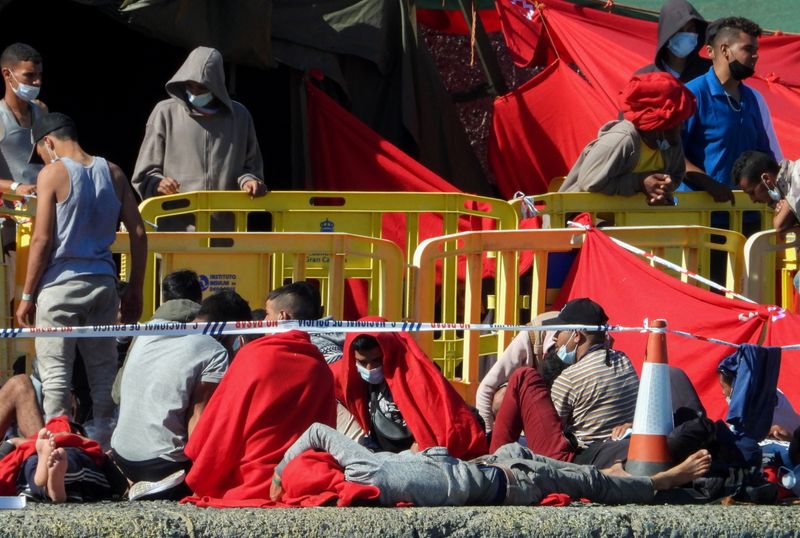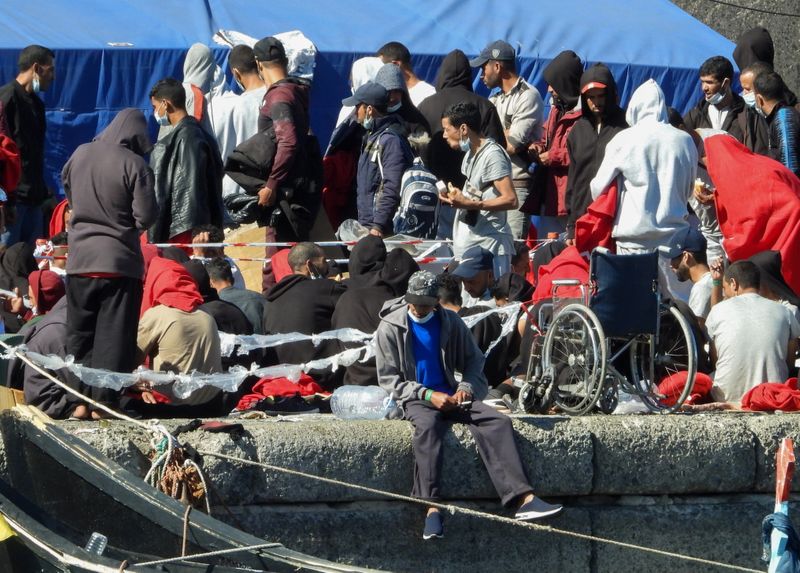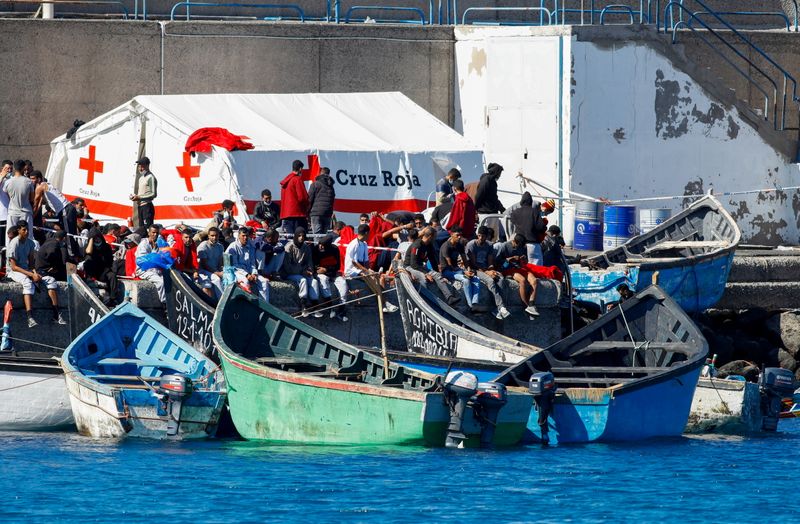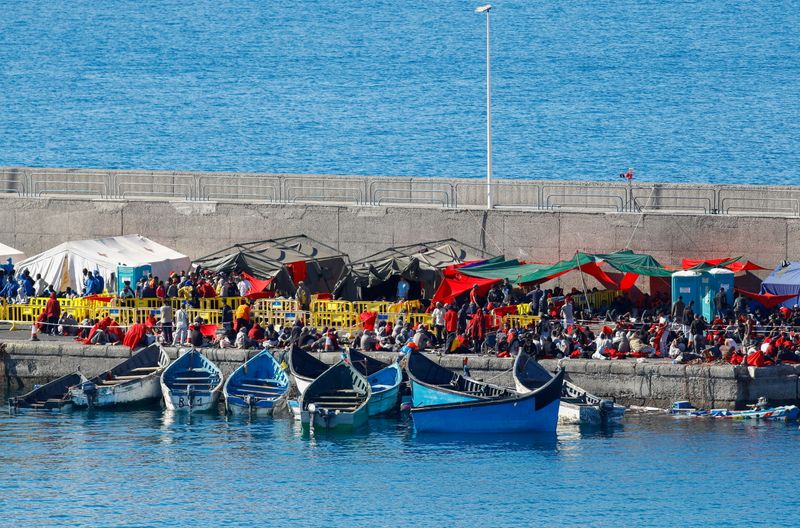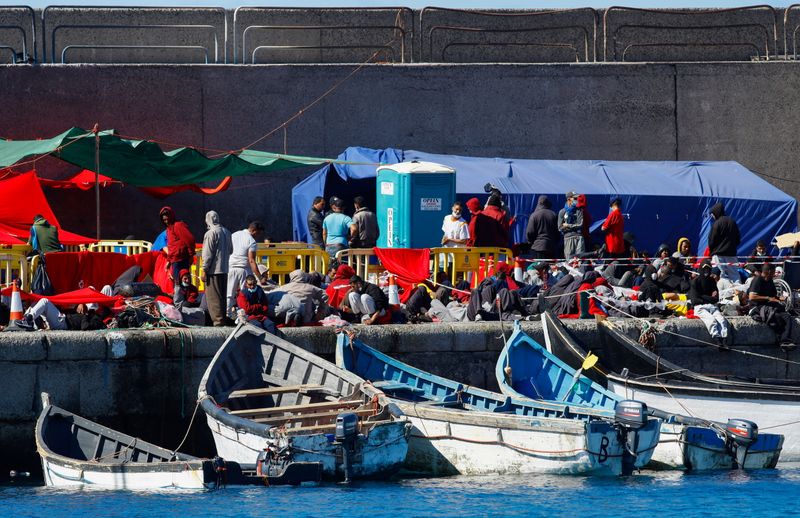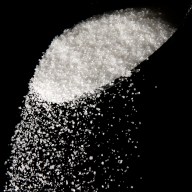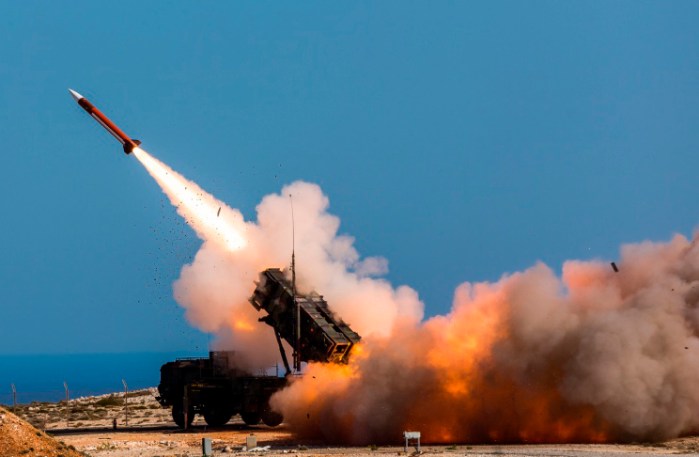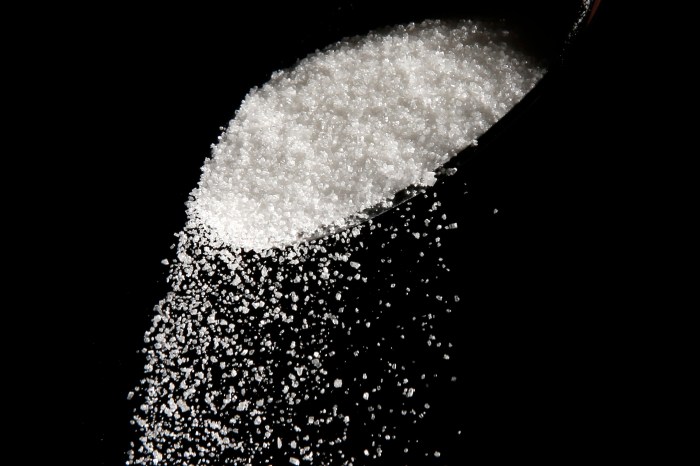GRAN CANARIA, Spain (Reuters) – More than 2,000 African migrants were stranded in a dockside camp on the Spanish island of Gran Canaria on Tuesday after a wave of arrivals overwhelmed local authorities’ capacity to house them.
“It’s a disaster. There’s a huge spike in arrivals and the situation is very complicated,” said Cristina Ruiz, a spokeswoman for the national government on the islands.
Across the Canary Islands archipelago, more than 2,600 people arrived in 73 boats between Saturday and Monday, she said, adding that the 1,461 who arrived on Saturday marked a new daily record.
Seeking relief from the sun blazing down on the port of Arguineguin in the south of Gran Canaria, some of the migrants fashioned shelters out of Red-Cross blankets propped up by plastic fencing.
With reception centres across the islands stretched to capacity, some have been stuck on the dock for days.
Seaborne migration to the Canaries, which lie around 100 km (60 miles) off Morocco’s west coast, has jumped ten-fold this year, with some 15,404 people braving the perilous Atlantic crossing.
After 2006, when more than 30,000 people reached the shores of the Canaries, Spain stepped up security and numbers dwindled to a few hundred per year.
But heightened security in the Mediterranean combined with economic strife from the coronavirus pandemic has left more migrants attempting the Atlantic route.
Underscoring the danger of the crossing, which is usually made in rudimentary wooden fishing boats, some 140 Europe-bound migrants died after their boat caught fire and capsized off the coast of Senegal at the end of October .
In the harbour at Arguineguin, several similar rickety boats wallowed low in the water, struggling to stay afloat after reaching European shores.
(Reporting By Borja Suarez; Writing by Nathan Allen, editing by Andrei Khalip and Alexandra Hudson)

